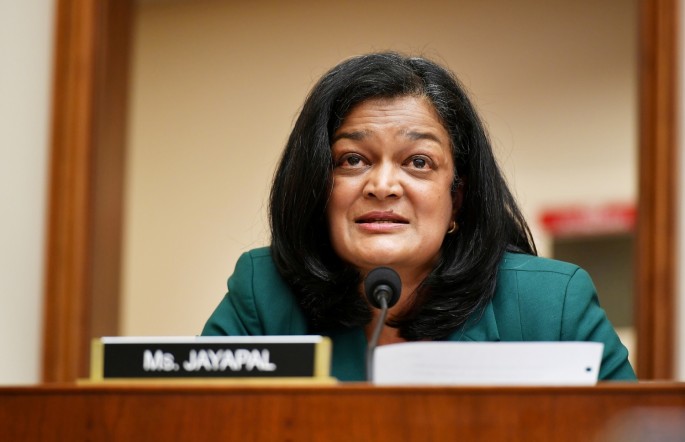U.S. Congress progressives on Tuesday signaled a new willingness to shrink the cost, but not the scope, of President Joe Biden's multi-trillion-dollar plan to broaden social programs and tackle climate change, as they struggle to reach a deal with party moderates.
Centrist Democrats have balked at the plan's initial $3.5 trillion price tag. As a result, Biden faces a difficult balancing act in trying to bring down the cost but not alienate progressives who also are essential to passage.
Following a meeting earlier this month on Capitol Hill with his fellow Democrats, Biden suggested the bill could cost around $2 trillion over 10 years.
"We are prepared to negotiate," Senator Bernie Sanders, an independent who aligns with Democrats, told reporters on a Tuesday conference call.
He initially sought a $6 trillion bill.
But Sanders drew the line on one initiative -- including the cost of elderly patients' vision, hearing and dental care covered under Medicare. "This to me is not negotiable," he said.
Sanders added that time is overdue for centrist Senators Joe Manchin and Kyrsten Sinema to tell the rest of the party what they want in the bill, which is the centerpiece of President Biden's domestic agenda.
The head of the Congressional Progressive Caucus, Representative Pramila Jayapal, complained that moderates had not articulated a clear position.
Among its provisions are expansions of healthcare for children and the elderly and significant investments in clean technology for everything from electric power generating plants to electric vehicles to reduce carbon emissions responsible for climate change.
"We are waiting for just a couple of senators to tell us what their proposal is," Jayapal said.
Over the past day, House Speaker Nancy Pelosi gave conflicting signals as to whether Democrats would cut specific programs or try to adjust timing to pare the bill's cost.
A spokesman said on Tuesday there were discussions of doing both.
Jayapal said that her nearly 100-member Progressive Caucus has made clear that it supports maintaining all the bill's main priorities but could go along with reducing the number of years they would be effective.
For example, she said the legislation could authorize free community college, child care and other programs for less than 10 years. But she said that climate change measures were needed for at least a decade.
Biden is due to travel to Glasgow in coming weeks for a United Nations climate meeting. Democrats would like to complete work on this massive bill by the end of October so that he can arrive armed with a significant set of climate goals enacted into U.S. law.
The $150 billion Clean Electricity Payment Program, which would reward utilities that add more clean energy capacity like wind and solar power and fine those that do not, is one example of that, Jayapal said. "Because it's a market-driven program there are real arguments for keeping that to 10 years," she said.
Democrats are trying get Manchin's support for the electric program, which he has long opposed, by boosting tax credits for coal and natural gas power plants that capture and store carbon dioxide.
Both programs could support Biden's climate goals of decarbonizing the U.S. power grid by 2035 and the wider economy by 2050.
Democrats plan to employ a special "budget reconciliation" tool to spirit their legislation through Congress without support from Republicans, who normally can use their minority status to block bills.



























